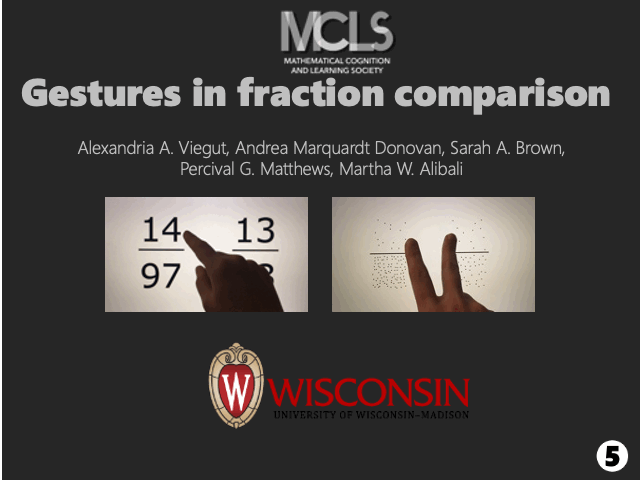
We study mathematical cognition with two overarching primary goals:
1) to understand some basic underpinnings of human cognition, and
2) to find ways to leverage this understanding into effective pedagogical techniques that can be used to impact the life chances of everyday people.
Strand 1 – Developing Understanding of Symbolic Number
Mathematical competence is an important determinant of children’s later educational and occupational prospects.
Converging lines of research suggest that acquiring of a robust sense of number is an essential first step on the road to mathematical competence. In the MELD lab, we are concerned with how numerical symbols come to be meaningful in the first place. How is it that symbolic numbers and number words – both relatively recent inventions on the evolutionary time scale – come to be associated with conceptions of specific magnitudes? How do we get a sense for what symbolic numbers mean? Our more recent projects focus on fractions in particular.

Strand 2 – Children’s Understanding of the Equals Sign
Understanding the equals sign is foundational to children’s mathematical development and serves as a key link between arithmetic and algebra. In the lab, we investigate:
(a) how different interventions can foster children’s understanding of the equal sign,
(b) how understanding of mathematical equality changes across developmental time, and
(c) how we can more effectively measure people’s understanding of mathematical equality.
Click on one of the links below to find out more:

![]()